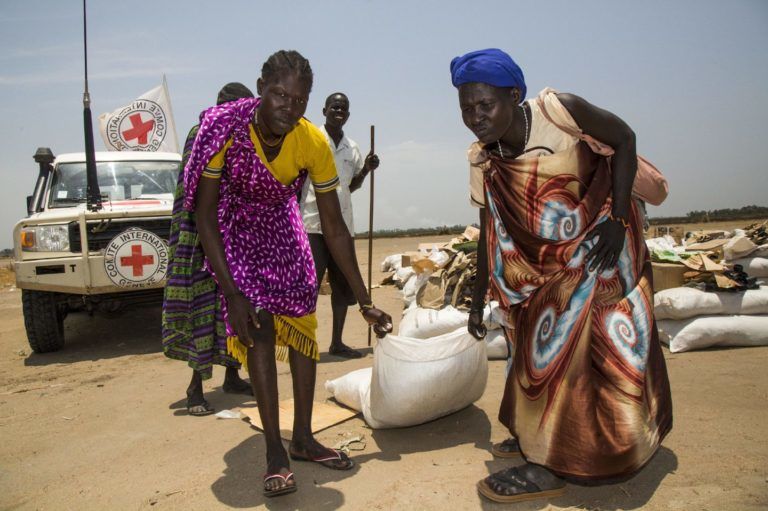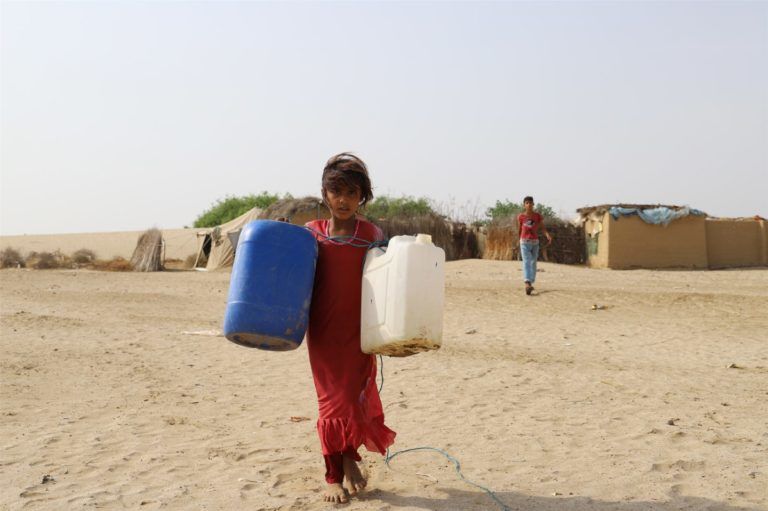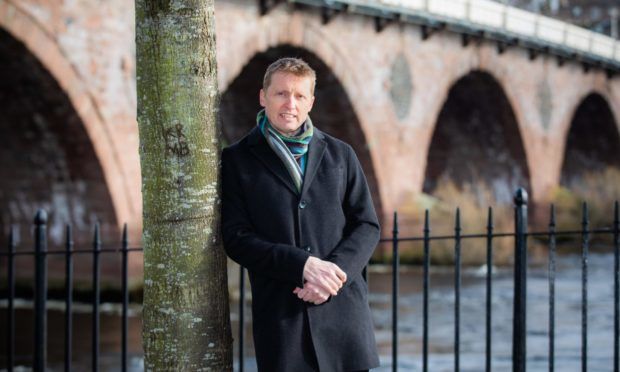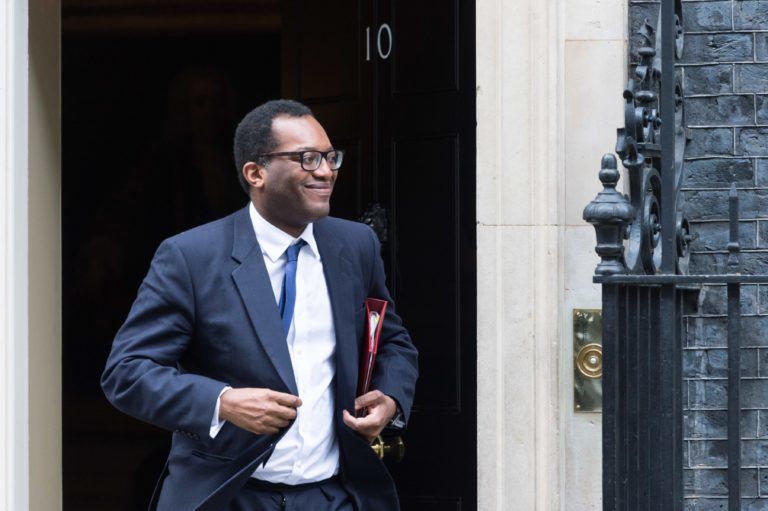
Does 'Global Britain' care about the poorest?: UK's moral authority reduced by 'short-sighted' cuts, says academic
As an academic geographer with particular expertise and experience in people and natural resource use and management in Africa, Emeritus Professor John Briggs of Glasgow University is used to exploring the most pressing challenges facing the continent in the third decade of the 21st century – from health to food security and Africa’s position in the changing world order.
However, the former Glasgow University vice principal, who was also convener of the Glasgow Centre for International Development at the university, is riled by the UK government’s recent decision to cut the UK’s foreign aid budget and research funding by £4 billion from 0.7% of national income to 0.5%.
While the government has cited the impact of Covid-19 on the UK’s public finances and says the UK remains a “world leading aid funder” with over £10 billion planned next year to fight poverty, tackle climate change and improve global health, there has been widespread opposition to the move with the “draconian cuts” denounced as balancing the books on the backs of the world’s poorest.
Two hundred of the UK’s charities and aid organisations are amongst those who have accused the government of delivering a “tragic blow” to the world’s most marginalised people.
Professor Briggs, who is chairman of the Perth-based Royal Scottish Geographical Society (RSGS), believes that mid-Covid-19 pandemic, the move, which is a reversal of a manifesto spending commitment made by the Conservatives in 2019, is particularly short-sighted.
“The immediate cut in the Official Development Assistance (ODA) budget really has been dramatic to say the least, and it’s going to be dramatic for some of the poorest countries in the world,” he says.

“Interestingly they’ve yet to publish the break-down by country, but there have been things sneaked out that Yemen is likely to see a reduction of 60% in ODA it receives.
“At the same time that Britain has done this incidentally, other countries of the G7 have actually increased their ODA – France by about 10 or 11%. I understand the USA, for crying out loud, has increased it by about 5%.
“Quite frankly it reduces the UK’s moral authority in the G7. But it’s also going to have a direct impact on poverty reduction in the global south, especially in Sub-Saharan Africa and in parts of the Middle East – Yemen in particular.”
Health, education and infrastructure projects
Noting that the UK’s £4 billion ODA cut ironically comes at a time when UK defence spending is increasing by £4 billion per year, Professor Briggs said a lot of ODA is spent on infrastructure and research projects which enhance future development prospects.
However, peoples’ everyday lives in terms of health, education – particularly girls’ education – and infrastructure projects will be affected very quickly.
At a time when Covid is bringing new devastation to some of the poorest countries on Earth, and with 20% of the world living on less than £1.50 per day, he says efforts to combat well-established diseases in Africa – especially malaria programmes – will suffer.
The Global Challenges Research Fund (GCRF) that was funded by government to promote research into global challenges particularly affecting low income countries in Africa, and Asia, will also be hit.

“Programmes that are half way through are now going to have to be abandoned and again it just strikes me as odd that when the present UK government talks about Global Britain, it’s doing very little to create a sense of trust among people in other parts of the world,” he says.
Does ‘Global Britain’ care about the poorest?
Professor Briggs, who has been committed to working for the global greater good for his whole career, is a critic of the government’s decision to get rid of the Department for International Development (DFID) and incorporate it into the Foreign and Commonwealth Office, now the Foreign, Commonwealth & Development Office (FCDO).
However, Professor Briggs says the other “related thing going on” is the recent publication of the Integrated Review of Security Defence Development and Foreign Policy, defining what ‘Global Britain’ actually is.
“Development appears in the title but doesn’t really appear in it,” he says.
“It makes it clear that ODA is to become an arm of foreign policy. DFID was created by Labour in 1997. By contrast, Conservative governments have always seen overseas development as part of foreign policy, although astonishingly in 2010 with the Conservative/Lib Dem coalition, they retained DIFID, as did Theresa May. Now Johnson has put the clock back 30 years.
“It’s all there: ‘We will focus our aid work on those areas that are important to a global focussed UK. We will effectively combine our diplomacy and aid with trade.’
“But it’s clear what they are going to do. The aid strategy as part of foreign policy will not go to the poorest, it will not contribute to poverty reduction.
“In Africa they say ‘we’ll work in partnership with South Africa, Nigeria, Kenya, Ethiopia and Ghana’ – middle income countries with the exception of Ethiopia.
“But these are not the poorest countries in Africa. What’s going to happen to them? They are poor, but Britain is not interested. They are not important for Britain globally. It’s disastrous in terms of the welfare of the poorest people on the planet.”
‘Quite complex’ debate
Professor Briggs also connects international development with recent debates around Black Lives Matter, and the recent revelation that black and Asian troops who died fighting for the British Empire during the First World War were not commemorated with war graves.
“Some people would argue quite strongly that the wealth of Britain is predicated on ‘the empire’ and the past, and that is where capital was accumulated,” he adds. “It’s all tied up with institutional racism and slavery. The debate is starting to become quite complex.
“If we wanted to argue this as well – by spending money on countries in terms of improving living standards then it gives people a greater desire to stay in their country and not travel right across Africa to try and get across the Mediterranean. Also, if people are better off, it doesn’t provide that fertile breeding ground for Al-Qaeda and the like.”
Letter from RSGS chief executive Mike Robinson
In March, Perth-based RSGS chief executive Mike Robinson wrote to the Foreign, Commonwealth and Development office and HM Treasury on behalf of RSGS academics to raise “strong concerns” over the ODA cuts.

He said it was “vital” to the UK’s reputation in the world, and to the jobs of many, that funding from ODA continue.
Mr Robinson said: “The cuts will seriously undermine the government’s objective to assume a new role in global leadership. The cuts will lead to a loss of international trust and will destroy existing and future scientific capacity.
“The UK’s reputation will be irreparably damaged. The cancellation of future projects is short-sighted.”
Mr Robinson said that for the UK government to insist that such issues are vital for the future but at the same time remove the funding that makes them possible is “perverse, and little short of incredible”.
He added: “In the year in which COP26 comes to the UK—when the eyes of the world will be upon the UK Government’s leadership in science and technology for the common human good—the message that these cuts send is that the UK does not value the research and academic expertise that can help promote better science, reduce our carbon impact, and make a better world.”
UK government response
Responding, UK government Business, Energy and Industrial Strategy Secretary Kwasi Kwarteng MP said the government’s decision to move to a target of spending 0.5% of Gross National Income (GNI) on ODA in 2021, down from 0.7%, had been “difficult”.
However, he said the UK remains a “world leading aid funder” with over £10 billion next year to fight poverty, tackle climate change and improve global health.

He also reiterated the government’s commitment to international development and intention to return to the 0.7% GNI target “when the fiscal situation allows”.
Mr Kwarteng said: “As the Foreign Secretary stated in November 2020, this is a temporary measure taken as a matter of necessity.
“This understandably has implications for R&D ODA funding for 2021/22 and institutions that have been active in supporting aid funded research programmes over recent years.
“My department is working with its delivery partners to implement the R&D ODA settlement for financial year 2021/22. This looks to protect the most impactful research programme.”











